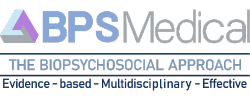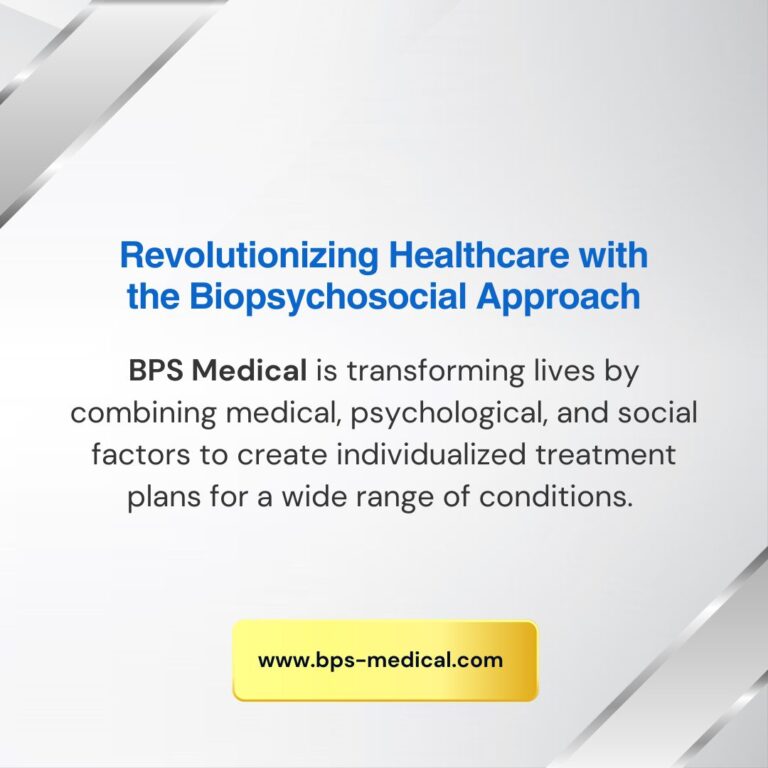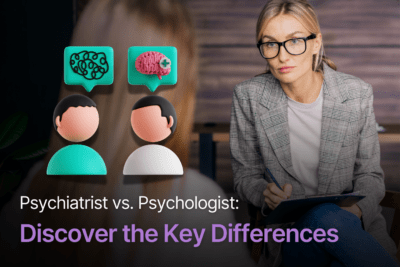Home » BPS Medical Providers » Staci Shacter | Nutritionist
Staci Shacter
Nutritionist
Staci Shacter is a registered dietitian renowned for her integrative approach to nutrition and wellness counseling. She holds a bachelor’s degree in Business Management from the University of Florida and a master’s in Nutrition from Florida International University. Her expertise lies in providing practical and tasty tips for managing conditions linked to inflammation, such as autoimmune diseases, chronic fatigue, digestive issues, and more. Staci’s mission is to equip individuals with the tools necessary to transition to a healthy lifestyle.
Get in touch today and receive a complimentary consultation.

Staci Shacter, MS, RD, LDN
Nutritionist
EDUCATION
MS: Masters in Dietetics and Nutrition, Florida International University, Miami, FL
BA: Bachelor of Arts, Business Management, University of Florida, Gainesville, FL
Registered Dietitian
Published: BMI & attitudes and beliefs about physical activity and nutrition of parents of adolescents with intellectual disabilities, Journal of Intellectual Disabilities Research, Volume 55, issue 11, pages 105-106
Work Experience
- Lead Nutritionist, Belly – Virtual
- Presenter, Integrative Nutrition – Nova Southeastern University
- Menu Design, Nutrition Expert – Carillon Resort Miami & Acqualina Resort
- Nutritionist, Sleep Manatee – Bradenton
- Drug and Alcohol Rehab Nutritionist, Florida House
- Corporate Nutritionist, Sapoznik Insurance, Miami-Dade County
- Nutritionist, Canyon Ranch (Carillon Miami Beach), Miami Beach
- Nutrition Director, Health is Wealth – Kosher Organics
- Nutrition Instructor, Concorde University
- Nutrition Author, Book/Magazine/Online
- Private Nutrition Consulting – Health is Wealth
- Apprenticeship, Ultimate Nutrition & Health – North Miami
- Childhood Nutrition Education, Yeshiva Elementary School- Miami
- Clinical Dietitian, Health South Rehabilitation Hospital – Sunrise
Professional Development Seminars & Webinars of Specialization
- Food For Thought: How Nutrients Affect Mental Health and the Brain
- The Brain’s Regulatory Systems
– Cortisol and melatonin circadian rhythm physiology
– The role of nitric oxide on the immune system - Functional Cardiology
- Evaluating Adrenal Strength Through Salivary Testing
- Gluten and Leaky Gut
– Understanding the complexity of gluten sensitivity
– Breaking the complex web of leaky gut - Functional Blood Chemistry Analysis
- Mastering the Brain (3 day seminar)
- Meta-Energetics
- Mastering the Thyroid (3 day seminar)
- Neuroendocrine and immune response to toxic exposure
- German Biological Medicine
- SIBO Small Intestinal Bacterial Overgrowth
- Nutrigenomics/Genetics testing and application
- Integrative approaches for Cancer
- iCamp 2017 University of Miami CEUs in functional and integrative medicine
Seminars Presented to Healthcare Providers
- Digestive Health (IBS, GERD, Constipation)
- Functional Cardiology & Integrative Nutrition
- General Nutrition Support – An Integrative Approach
- Analyzing Diet Trends and Learning Foundational Nutrition Based on Current Research
- Integrative Nutrition- Crash Course
- Elderly Nutrition
- Food as Medicine – Immune
- Anti-Aging
- Autoimmunity
- The science of weight loss (and disordered eating)
- Histamine Intolerance
Lectures for Public Education
- Anti-inflammatory Diet
- Eating healthy on a budget
- Quick and Easy Healthy Meals
- Juicing vs. Smoothies
- What is “Detox”?
- To salt or not to salt?
- Myth Busting Fad Diets
- Bars and shakes, which to take?
- Holiday Eating…going in with a plan
- Heart Health: An integrative approach
- Why put a label on it? Reading Nutrition Labels
- Diabetes: An integrative approach
- Beauty is Wellness: An integrative approach to anti-aging
- Why can’t I lose weight? – Exploring reasons outside of diet and exercise
- Eating Clean to Stay Clean: Connecting nutrition to brain health, mood, and addiction
- Practical application- integrating wellness into your routine for staying clean.
Books
- The Meat & Potatoes of a Healthy Meal Plan…no bun intended A Practical Guide for Healthy Dietary Change
- The Meat & Potatoes of a Low-FODMAP Meal Plan…no bun intended for IBS & SIBO (Also available in Spanish)
- Ebook Series: Whole Meal Plans- My Health Ebook (for a variety of different elimination diets for special dietary needs)
Languages
English
“You are what you eat.” This timeless adage underscores the profound impact of nutrition on our overall health and mental well-being. In this exploration, we delve into the role of nutrition in health, with insights from esteemed nutritionist Staci Shacter, MS, RD, LDN, and examine how dietary choices influence both physical and mental health.
Staci Shacter's Role at BPS Medical
At BPS Medical, Staci serves as a nutritionist specializing in helping patients who struggle with sleep issues and other mental health concerns. She provides personalized dietary guidance to improve sleep quality, reduce anxiety, and support overall mental well-being. Her holistic approach focuses on the connection between nutrition and brain function, ensuring that patients receive tailored recommendations to enhance their cognitive and emotional health.
What Exactly Do Nutritionists Do?
Nutritionists are professionals who specialize in the study of food and nutrition and how they impact overall health. They provide guidance on healthy eating habits, create personalized meal plans, and help individuals manage specific health conditions through diet. Nutritionists work in various settings, including hospitals, private practices, wellness centers, and corporate environments. Their expertise can assist with weight management, digestive health, chronic disease prevention, and mental well-being. By evaluating dietary habits and lifestyle choices, nutritionists develop strategies to improve health and quality of life.
The Impact of Nutrition on Physical Health
Nutrition plays a pivotal role in maintaining physical health. A balanced diet provides essential nutrients that support bodily functions, boost the immune system, and reduce the risk of chronic diseases. Conversely, poor nutrition can lead to a myriad of health problems.
For instance, diets high in refined sugars and processed foods are linked to obesity, type 2 diabetes, and cardiovascular diseases. A study highlighted that super-processed, packaged foods constitute 60% of daily caloric intake in the American diet, contributing to various health issues. (nypost.com)
Moreover, excessive consumption of red and processed meats has been associated with an increased risk of cancer and type 2 diabetes. It’s crucial to moderate the intake of such foods to maintain long-term health. (thetimes.co.uk)
Nutrition and Mental Health
The connection between diet and mental health is an emerging field of study known as nutritional psychiatry. Research indicates that dietary choices significantly influence mental well-being.
Multiple studies have found a correlation between a diet high in refined sugars and impaired brain function, leading to a worsening of symptoms of mood disorders, such as depression. (health.harvard.edu)
Furthermore, poor nutrition may be a causal factor in the experience of low mood, and improving diet may help protect both physical and mental health. (pmc.ncbi.nlm.nih.gov)
A scoping review concluded that healthy nutritional habits generally reduce depressive symptoms, while vitamin D supplementation improves mental health status. (mdpi.com)
Statistics Highlighting the Impact of Nutrition
A study published in 2019 found that a diet low in saturated fat, added sugars, and sodium could lower one’s risk of depression by about 25% over a 12-year period. (workplaceoptions.com)
Four in five adults (81%) are willing to change their diet in a way that positively impacts mental health. (nutrition.org)
In 2020, 22.0% (149.2 million) of children under 5 years of age were affected by stunting due to poor nutrition. (en.wikipedia.org)
Consequences of Poor Nutrition
Neglecting proper nutrition can have far-reaching consequences on both physical and mental health. Physically, it can lead to obesity, cardiovascular diseases, diabetes, and weakened immune function. Mentally, poor nutrition is associated with an increased risk of depression, anxiety, and cognitive decline.
A diet high in processed foods and low in essential nutrients can impair brain function and exacerbate mood disorders. Conversely, a balanced diet rich in fruits, vegetables, lean proteins, and whole grains supports mental well-being and cognitive function. (health.harvard.edu)
Practical Tips for Improving Nutrition
Embrace Whole Foods: Focus on consuming whole, unprocessed foods such as fruits, vegetables, whole grains, lean proteins, and healthy fats.
Limit Processed Foods: Reduce the intake of processed and ultra-processed foods high in added sugars, unhealthy fats, and sodium.
Stay Hydrated: Adequate water intake is essential for overall health and supports cognitive function.
Mindful Eating: Pay attention to hunger and fullness cues, and avoid emotional eating.
Consult a Professional: Seek guidance from a registered dietitian or nutritionist to develop a personalized eating plan tailored to your health needs.
The profound connection between nutrition and overall health underscores the importance of making informed dietary choices. As highlighted by experts like Staci Shacter, adopting a balanced and nutrient-rich diet can prevent numerous health issues and promote mental well-being. Remember, “You are what you eat.” Prioritizing nutrition is a vital step toward achieving optimal health and a fulfilling life.









